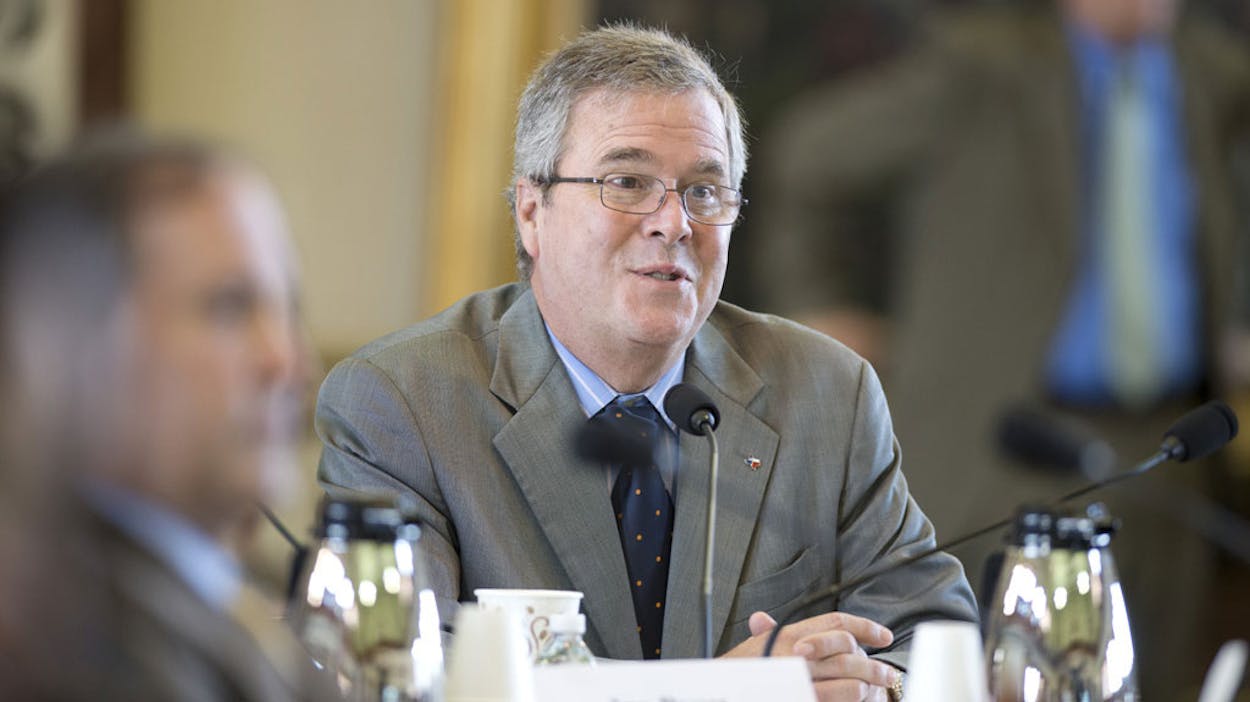I’m not going to venture any predictions about what to expect from the New Hampshire primary today. I haven’t reported from the state this week—I returned to Texas after the Iowa caucus—and the race seems awfully volatile. State polls show Donald Trump leading the field. According to the most recent RealClearPolitics average, he has nearly twice as much support as any of his rivals. But it’s not clear who his nearest competitor actually is. Marco Rubio, John Kasich, Ted Cruz, and Jeb Bush are all jostling around within the margin of error. And according to the political lore, New Hampshire voters are notoriously unpredictable—not because they have a quirky process that lends itself to unanticipated plot twists, as was the case in Iowa, but because the voters themselves are too rugged and independent-minded to conform to expectations, or even to act in accordance with their own preferences, as previously expressed to the nation’s beleaguered pollsters. Even Chris Christie, according to observers, has a chance to come in second or third. He’s trailing the aforementioned candidates, with about 5 percent in the polling averages, but he distinguished himself by effectively pummeling Rubio in Saturday evening’s debate.
One thing we can all agree on, though, is that this is a high-stakes night for half of the candidates running. Cruz and Rubio probably have the least on the line: either one would benefit from coming in second, but would survive coming in fifth. For Carly Fiorina and Ben Carson, who are polling in the low single digits, the opposite is true: either might proceed to the next primary, in South Carolina on February 20, but unless one of them shocks the world by winning, only an unusually ardent supporter would argue that either should.
For Christie, Kasich, and Bush, however, New Hampshire will likely have existential consequences for their 2016 prospects. All three have been hoping to emerge as the establishment alternative for the Republican nomination, and all three suffered a setback when Rubio finished in third place in Iowa, just a whisker behind Trump. If Rubio once again places first among the candidates other than Cruz or Trump—even after his shaky performance on Saturday—he’ll be able to assert himself as the strongest of the non-Trump-or-Cruz candidates. The other three will face serious pressure to withdraw from the race. Bush, I suspect, would be the most inclined to withstand the pressure in that scenario, and he’s the only one practically equipped to do so; his campaign is well-funded, and backed by a nationwide network of influential supporters. For Christie and Kasich to persevere would suggest ulterior motives rather than a serious plan at winning the presidency. It occurred to me on Saturday, not for the first time, that Christie might be open to the idea of joining the 2016 ticket as a running mate for Cruz. And although I can’t remember who pointed this out to me, I will pass along an insight about Kasich that struck me as plausible: as the former governor of Ohio, he remains popular in a swing state with a significant number of electoral votes, and his endorsement may prove desirable a bit farther down the line.
The stakes are also high for Trump. Most readers are probably aware that Ben Carson, who finished in fourth place in the Iowa caucus, came out swinging after reports that Cruz’s staff had circulated the news, reported just minutes before the caucuses began, that Carson would take a break from the campaign trail. The reports were true, and so easily misinterpreted that Carson’s own campaign had quickly moved to clarify that the doctor was not, in fact, planning to drop out of the race for the nomination. But in Carson’s view, it was a dirty trick on the part of the Cruz campaign, and “a very good example of certain types of Washington ethics,” as he put it on Saturday. And for Trump, it was more than that: it was an opportunity to avoid confronting the reality of his loss. By Friday, he had convinced himself Cruz “should be immediately disqualified in Iowa, with each candidate moving up one notch.” And on Saturday, after Cruz made reference to his victory in Iowa during his closing statement during that evening’s debate, Trump reiterated his doubts: “That’s because he got Ben Carson’s votes, by the way.” Should Trump lose in New Hampshire, he’ll need to come up with another soothing story. The psychological strain might be too much to bear.







